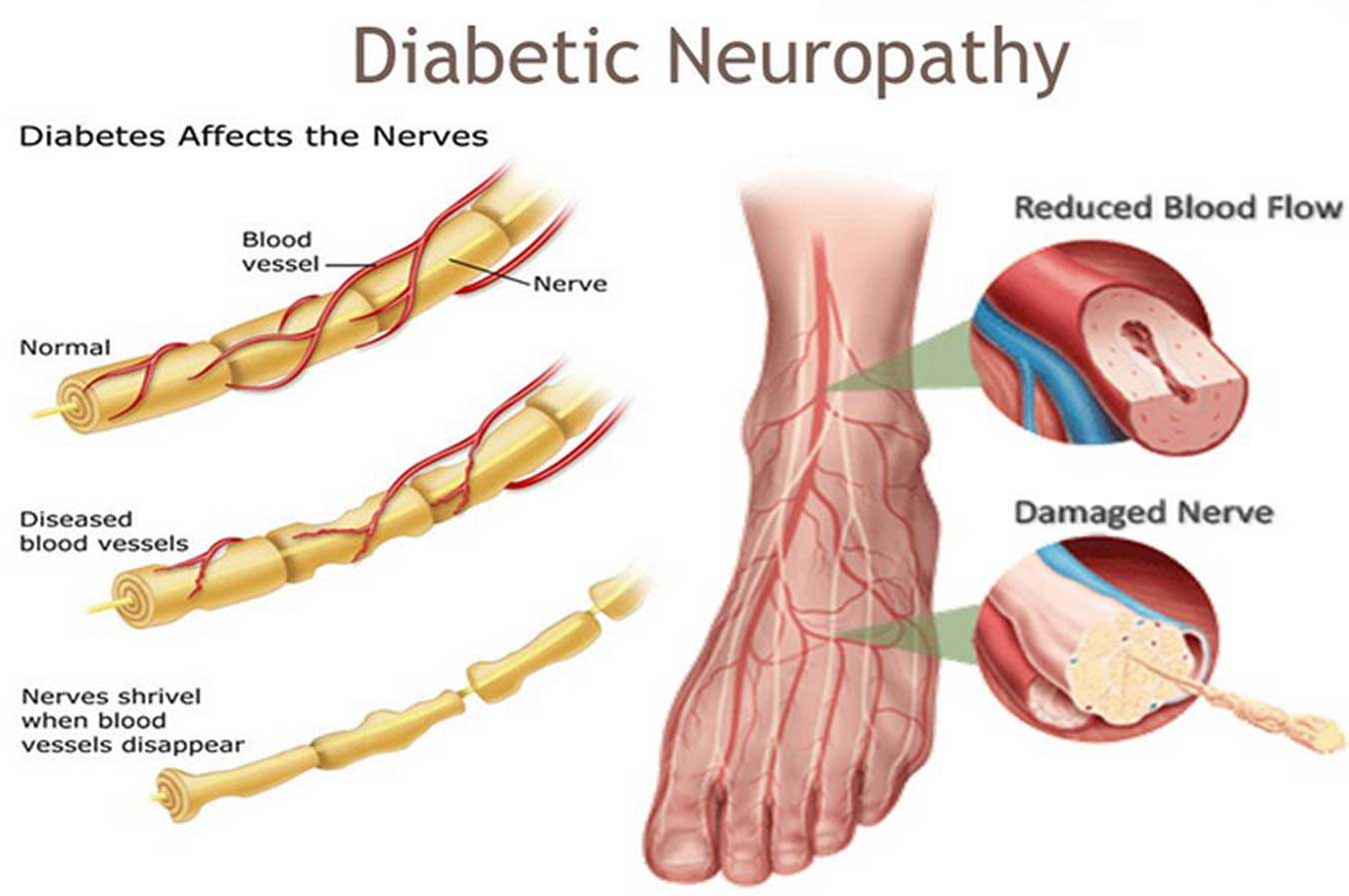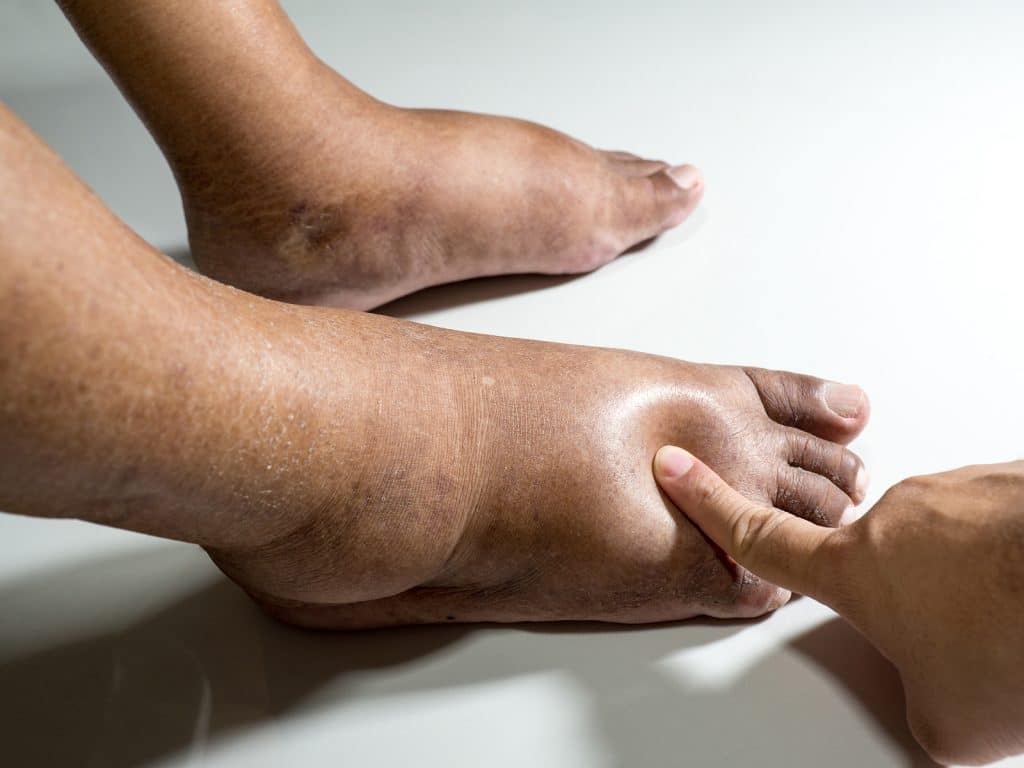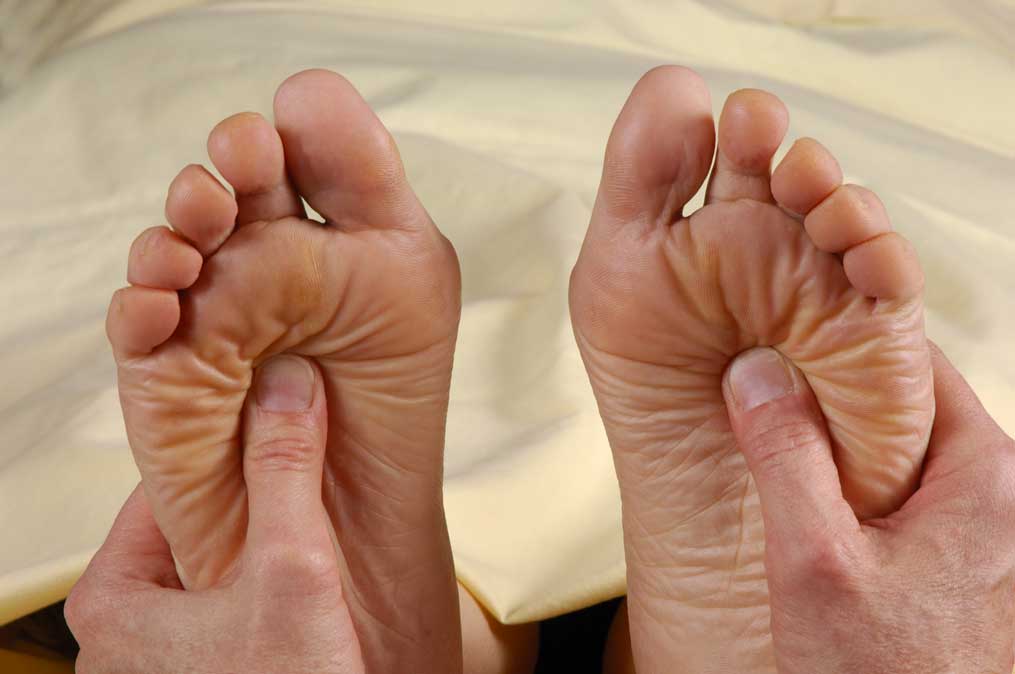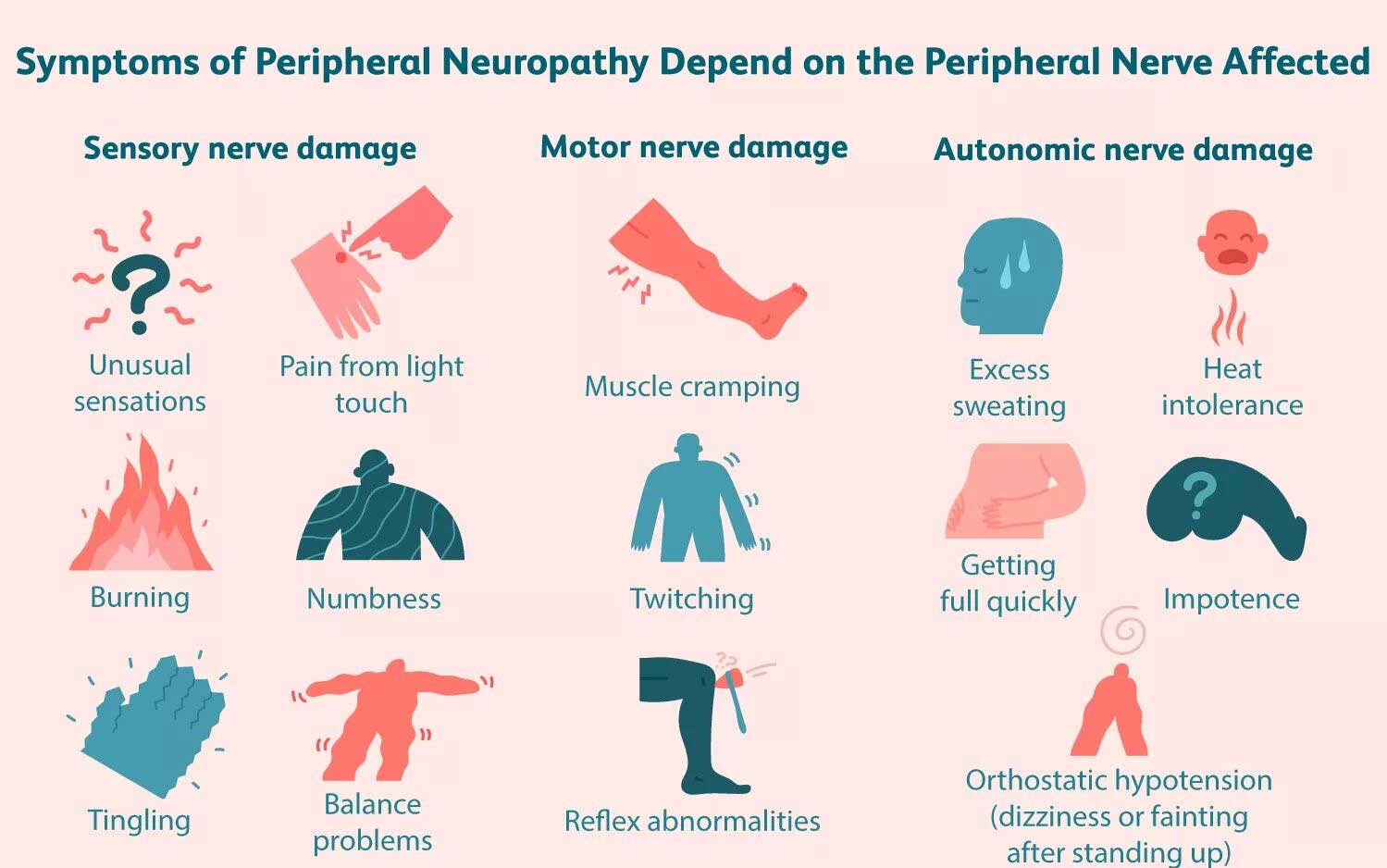Diabetic Neuropathy impacts between one-third and a half of people suffering from diabetes. This is the most common complication of diabetes mellitus (DM), affecting patients with type 1 and type 2 diabetes.
Diabetic neuropathy damages the nerves, which are essential for body works. Nerves enable us to move, send messages to the brain about senses, and control automatic functions, such as breathing. Constant high sugar levels can injure the nerves throughout the body mostly the legs and feet.
The symptoms of diabetic neuropathy depend on the affected nerves. These usually range from pain and numbness in your legs and feet to problems with your digestive system, urinary tract, blood vessels, and heart. You may experience mild symptoms. But, for others, these symptoms can be quite painful and disabling.
Though it is a serious complication, you can prevent diabetic neuropathy or slow its progress with consistent blood sugar management and a healthy lifestyle.

WHAT CAUSES DIABETIC NEUROPATHY?
Constant high blood sugar levels over a long period result in the development of diabetic neuropathy. But, some other factors can also lead to nerve damage, such as:
- High cholesterol levels cause damage to the blood vessels
- A mechanical injury like injuries from carpal tunnel syndrome
- Lifestyle factors, like smoking or alcohol abuse
- Vitamin deficiencies such as low levels of vitamin B-12
Some of the common diabetic medications like Metformin can decrease levels of vitamin B-12. Nerve damage due to diabetes can cause problems with balance and coordination, leading to falls and fractures. The nerve damage can also cause chronic pain resulting in anxiety and depression.
You are more likely to develop neuropathy from continued high sugar along with:
- Overweight
- High blood pressure
- High cholesterol
- Advanced kidney disease
- Drink too many alcoholic drinks
- Smoke

WHAT ARE THE SYMPTOMS OF DIABETIC NEUROPATHY?
The symptoms would depend on the type of diabetic neuropathy you have been diagnosed with. Some of the common symptoms are numbness, tingling, pain, or weakness, especially in your hands or feet. The condition is severe when you can’t feel pain and an ulcer that develops on your foot.
Peripheral Neuropathy: This is nerve damage that usually affects the feet and legs and rarely the arms, abdomen, and back. The early symptoms might get better when blood sugar is under control The symptoms would include:
- Tingling
- Numbness that may become permanent
- Burning sensation especially in the evening
- Pain
This can lead to foot complications, like sores, ulcers, and infections, as nerve damage can make you lose feeling in your feet. Rarely, people with peripheral neuropathy may develop Charcot’s joint, in which a joint breaks down because of nerve issues, often in the feet.
The condition might worsen when you are not able to feel heat, cold, or injury.
Autonomic Neuropathy: This occurs when there is damage to nerves that control your internal organs, causing problems with your blood pressure and heart rate, digestive system, bladder, sweat glands, sex organs, and eyes. The symptoms include:
- Bloating
- Diarrhea
- Constipation
- Heartburn
- Nausea
- Vomiting
- Feeling full after small meals
- Low blood pressure
- Dizziness
- Faster Heartbeat
- Blacking out if you stand quickly
- Trouble emptying your bladder
- Bloating
- Incontinence (leaking urine)
- More bathroom trips at night
- Men not able to have or keep an erection
- Men having “dry” or reduced ejaculations
- Women having less vaginal lubrication
- Women having fewer or no orgasms
The damage to the nerves and internal organs can lead to hypoglycemia unawareness.
Proximal Neuropathy: You may experience pain, usually on one side, in the thighs, hips, or buttocks. This can also lead to weakness in the legs and might rarely spread to another side. This is a rare and disabling type of nerve damage.
Focal Neuropathy: This will cause damage to single nerves, usually in your hand, head, torso, or leg. Entrapment syndromes, such as carpal tunnel syndrome is the most common type. The symptoms include:
- Double vision
- Eye pain
- Bell’s palsy, which is paralysis on one side of the face
- Severe pain in the lower back or leg(s)
- Chest or belly pain
Sometimes the pain in the chest or belly is mistaken for another condition, such as heart attack or appendicitis.

HOW CAN DIABETIC NEUROPATHY BE DIAGNOSED?
The endocrinologist or physicians would carry out a physical exam and foot exam to check for:
- Ankle reflexes
- Loss of sensation
- Changes in skin texture
- Changes in skin color
They would also order tests to check for blood pressure and fluctuations in heart rate along with other imaging tests such as:
- Electromyogram (EMG – To record electrical activity in the muscles.
- Nerve conduction velocity test (NCV) – To record the speed at which induced signals pass through the nerves.
These tests help in detecting the extent of nerve damage.
HOW CAN YOU PREVENT DIABETIC NEUROPATHY?
The key to prevention is to manage your diabetes by managing your blood glucose, blood pressure, and cholesterol levels.
Some of the following steps help prevent diabetes-related nerve damage:
- Being physically active.
- Following your diabetes meal plan.
- Quitting smoking.
- Limiting alcohol.
- Taking any diabetes medicines on time.
Along with controlling diabetes, you should care for your foot care and it’s even more important if you have peripheral neuropathy.
You should check your feet for any abnormalities every day, and take good care of your feet.

HOW CAN DIABETIC NEUROPATHY BE TREATED?
Diabetic neuropathy would worsen over time if the blood sugar level is not controlled. The initial focus is to bring blood sugars within a target range and manage high blood pressure and cholesterol levels.
Managing appropriate glucose levels will reduce the risk of diabetic neuropathy, which is the key part of treatment.
Medications for pain along with blood sugar level control and physical therapy helps to control the symptoms of diabetic neuropathy. But, these cannot repair the nerves. You should avoid or stop smoking and limit your alcohol intake to a maximum of one drink a day for women and two for men to prevent worsening the symptoms.
The second step is to avoid any complications with the help of lifestyle changes. Diabetic neuropathy can lead to several high-risk complications. These range from heart rate changes to even visual disturbances.
Uncontrolled diabetes can even lead to an inability to feel cuts or sores, and this might even lead to infection. Untreated infection might even lead to limb amputation if not taken seriously.
Other complications include severe bladder and kidney infections causing serious health problems.

OUTLOOK
Diabetic neuropathy causes nerve damage that occurs in people who have constant high diabetes. People suffering from diabetic neuropathy tend not to feel injuries on the feet. Thus, regular inspection of the feet is necessary to avoid undetected infection and the possible loss of limbs. Lifestyle changes are essential in reducing the changes of worsening of symptoms of diabetic neuropathy.
If you or anyone you know is suffering from feet pain, our expert providers at Zenith Injury Relief & Wellness Clinic will take care of your health and help you recover.
Call us on 972-210-0033 to book an appointment with our specialists, and begin living your life pain-free.
